The Good Lie
 for thematic elements, some violence, brief strong language and drug use.
for thematic elements, some violence, brief strong language and drug use.
Reviewed by: Samuel Chetty
CONTRIBUTOR
| Moral Rating: | Average |
| Moviemaking Quality: |
|
| Primary Audience: | Adults Teens |
| Genre: | Drama |
| Length: | 1 hr. 50 min. |
| Year of Release: | 2014 |
| USA Release: |
October 3, 2014 (wide—450+ theaters) DVD: December 23, 2014 |
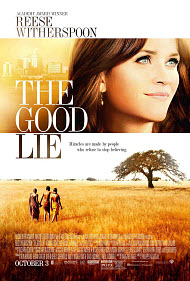

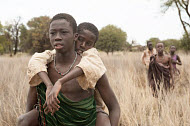
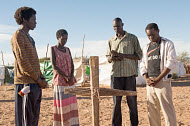

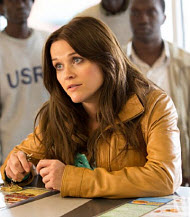

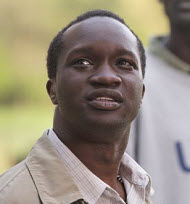
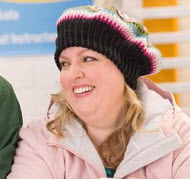
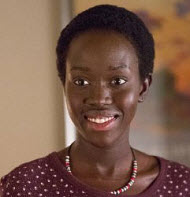
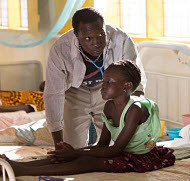
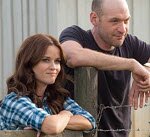
adjusting to a completely different lifestyle
clash of cultures
orphans in the Bible
plight of Sudanese refugees / the Lost Boys orphaned by the brutal civil war in Sudan that began in 1983
helping people in need / humanitarian service
America’s long humanitarian history—long led and supported by followers of Christ
POVERTY—What does the Bible say about the poor? Answer
poor in the Bible
Why does God allow innocent people to suffer? Answer
What about the issue of suffering? Doesn’t this prove that there is no God and that we are on our own? Answer
Does God feel our pain? Answer
ORIGIN OF BAD—How did bad things come about? Answer
Did God make the world the way it is now? What kind of world would you create? Answer
dealing with feelings of guilt
| Featuring |
|---|
|
Reese Witherspoon … Carrie Arnold Oceng … Mamere Ger Duany … Jeremiah Emmanuel Jal … Paul Corey Stoll … Jack Kuoth Wiel … Abital Femi Oguns … Theo Sarah Baker … Pamela Lindsey Garrett … Jenny See all » |
| Director |
|
Philippe Falardeau |
| Producer |
|
Alcon Entertainment Black Label Media See all » |
| Distributor |
Review updated 10.4.2014.
“The Good Lie” opens during a war in Sudan in the late 1980s. Several Sudanese children become orphans after their parents are killed by a militia shooting in their village. To try to get away from the violence, the children embark on a dangerous journey by foot to Kenya. They deeply bond with each other during that ordeal and regard each other as brothers and sisters for the rest of the story. Thirteen years later, four of the children (now in their late teenage or young adult years) who survived to that point and could remain together are granted permission to move to the United States.
When Mamere (Arnold Oceng), Jeremia (Ger Duany), Paul (Emmanuel Jal), and Abital (Kuoth Wiel) arrive in the U.S., the males are directed to Kansas City to live at a place set up for them by Pamela (Sarah Baker), who works for a Christian mission organization. The girl, Abital, has to go to Boston, because girls are required to live with a family, and a family for her could not be found in Kansas City. Another woman, Carrie Davis (Reese Witherspoon), is assigned to help the young men in Kansas City find a job. Though they are appreciative of their life in the U.S., they face difficulty meeting U.S. employee expectations and dealing with separation from Abital, who they consider their sister.
The movie’s character designs are strong. The Sudanese friends have contrasting attitudes about life in the United States which evolve as the story progresses. Carrie’s personality is pretty good for comic relief, with her awkwardness when trying to talk to the boys and blunt, matter-of-fact attitude when talking to prospective employers for them. As the movie moves along, she transitions from an attitude of helping the young men as an assigned task to acting out of personal concern.
As for conveying a message, the movie’s title obviously raises the question of whether lying is ever justified. The movie does have a lie at the end that is not condemned by the plot or characters. ***SPOILER*** Mamere learns that a brother who he thought was killed long ago is actually alive. Mamere returns to Africa to confirm that his brother is alive and hopes to bring him to the U.S., but Mamere’s request is denied by the U.S. Embassy. Mamere gives his brother his passport and tells him to go to the U.S. under the identity of Mamere. Mamere himself stays in Africa. From a storytelling standpoint, this represents a major sacrifice on the part of Mamere, because of the three Sudanese men who had lived in the U.S., he had the greatest ambitions for his new life there. ***END SPOILER***
We do not know what happens to the characters after that, so I don’t think the movie is trying to claim that lying is either the right or wrong thing to do in the long run. Instead, I think the idea conveyed is only that people with compassionate intentions can feel compelled to lie under certain situations. There are many examples of positive moral values in the movie, as the children show deep commitment to each other throughout, and helping them out in America brings joy to Carrie’s personal life which had seemed a bit chaotic in the beginning. Although “The Good Lie” is not advertised as a Christian movie, there are many Biblical references. The Sudanese children read the Bible and pray together, and they consistently attribute improvements in their lives to the work of God.
I consider this movie to be decisively better than average from a moviemaking perspective and would recommend seeing it if you are comfortable with movies that have the content described below.
Violence: In the beginning of the movie, there are several intense gunfire scenes with shots fired at both adults and children. Blood and gore are mild-to-moderate.
Language: GD (1), “My G*d” (2), “holy cr*p” (1), “hell,” various mild vulgarities (6). A Christian character says “thank Jesus” before drinking tequila and getting drunk.
Sexual Content: Early in the movie, Carrie appears to live with her boyfriend, and there’s one scene in which they sit on the bed together and kiss. Carrie is fully clothed, but the boyfriend doesn’t have a shirt on, and there is a bra lying on the bed. Later on, we see one of the Sudanese guys in a bathtub with only his arms and head visible.
Drug Use: One of the Sudanese men is influenced by his American co-workers to start smoking marijuana to relieve stress. Later in the movie, it is shown that this practice has negative impacts on his personality.
Other: There is one scene of a person vomiting.
Violence: Moderate to heavy / Profanity: Moderate / Sex/Nudity: Moderate
See list of Relevant Issues—questions-and-answers.


Moral rating: Good / Moviemaking quality: 4½
Moral rating: Good / Moviemaking quality: 4½
While I was annoyed with the implication of a sexual encounter of “Carrie”. It acknowledged the typical world as it is today, but was brief and not revisited. As a Christian, I would not let this deter you from this really awesome message.
Moral rating: Excellent! / Moviemaking quality: 5
PLEASE share your observations and insights to be posted here.

My Ratings: Moral rating: Good / Moviemaking quality: 3